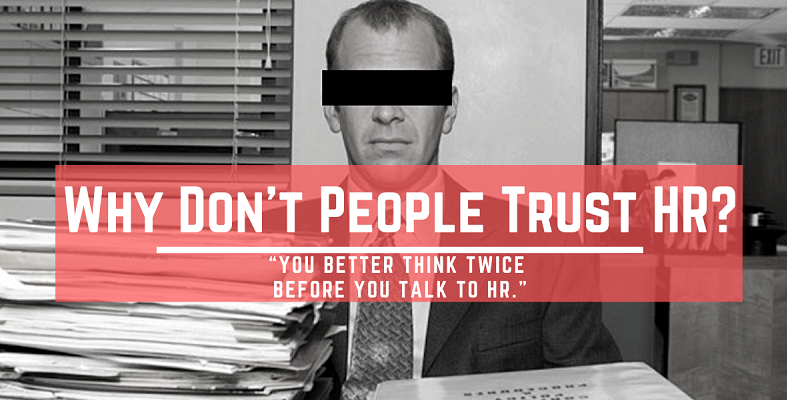
Why Don't People Trust HR?
Are You Hiring?
Find candidates in 72 Hours with 5+ million talents in Maukerja Malaysia & Ricebowl using Instant Job Ads.
HIRE NOW
“You'd better think twice before you talk to HR.”
It seems to be a popular sentiment among employees nowadays. This calls for a review on why employees tend to view HR in a bad light, and what HR professionals can do about it.
These are the top three reasons why HR gets a bad reputation:
1. Not Seeing Employees as Clients
A lack of customer focus leads to delayed responsiveness, poor quality of support, and a low utilisation of employee benefits or programs that are known to improve workforce engagement and satisfaction.
You need to test the quality of your HR department’s services. Survey your workforce and ask if they had the choice, would they rehire or fire their current HR team? Their feedback can serve as a road map on how to improve that perception.
What HR should do: To improve the HR department’s focus on customer service, try shifting the HR team’s attitude from viewing employees as an inconvenience to treating them like clients. Adopting a philosophy where HR is responsible for marketing and providing high-quality services to its customers, accountable for client satisfaction and rated on their ability to deliver results will cause an improvement in not only the workforce’s perception of HR but organisational outcomes as well.
2. No Objectivity
Bias is baked into our experiences, so in order to remain objective, one needs to be self-aware. There is a natural tendency for HR professionals to not want to bite the hand that feeds them, which can lead employees to the impression that HR only supports management. This ends up with an “us vs. them” perception, which destroys trust and confidence in HR’s ability to serve employees.
What HR should do: HR professionals should try removing bias and emotion from the situation, which allows them to focus on the facts at hand rather than simply choosing sides. it’s a sign of maturity for HR to be able to admit when management has acted in a manner that is not in the best interest of the company. This will help HR professionals build credibility and trust, which will certainly change employees’ perspectives of the department. The risk here is where HR becomes overly objective and begins to leave out the human part of human resources.
3. Lack Of Choice
HR professionals are frequently associated with the business’s “dirty work” such as layoffs, demotions, rejections, and progressive discipline procedures.
A simple litmus test for a company’s perspective of HR is to have an HR professional join a meeting or call without notice. If employees seem nervous because HR is in the room, then it’s a clear indication that the organisation does not have a positive view of HR’s role in the business.
What HR should do: HR professionals need to step out of their offices and spend more time with the workforce. Social interactions without business-related motives helps to humanise HR professionals while building trust and broader relationships. Whenever HR has to participate in “dirty work,” they should do so with compassion, patience, sympathy and understanding. How HR professionals execute these duties will have far-reaching consequences beyond just employer brand.
In conclusion, HR professionals can improve employees’ perspectives by serving the workforce as if they were clients and not burdens, remaining objective when navigating emotionally-charged situations and executing their duties with both passion and compassion.
For fast and effective hiring, head over to AJobThing to post a job to 4 million job seekers!
This article is adapted from Dr. Timothy J. Giardino's "Three Reasons People Distrust HR -- And What HR Can Do About It"





